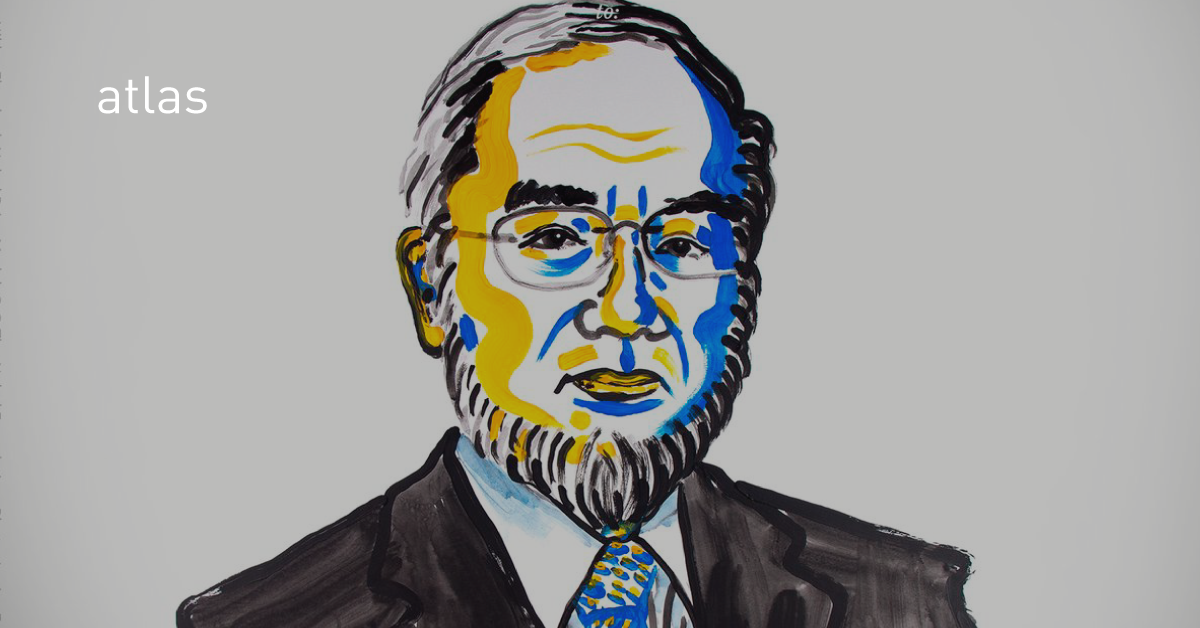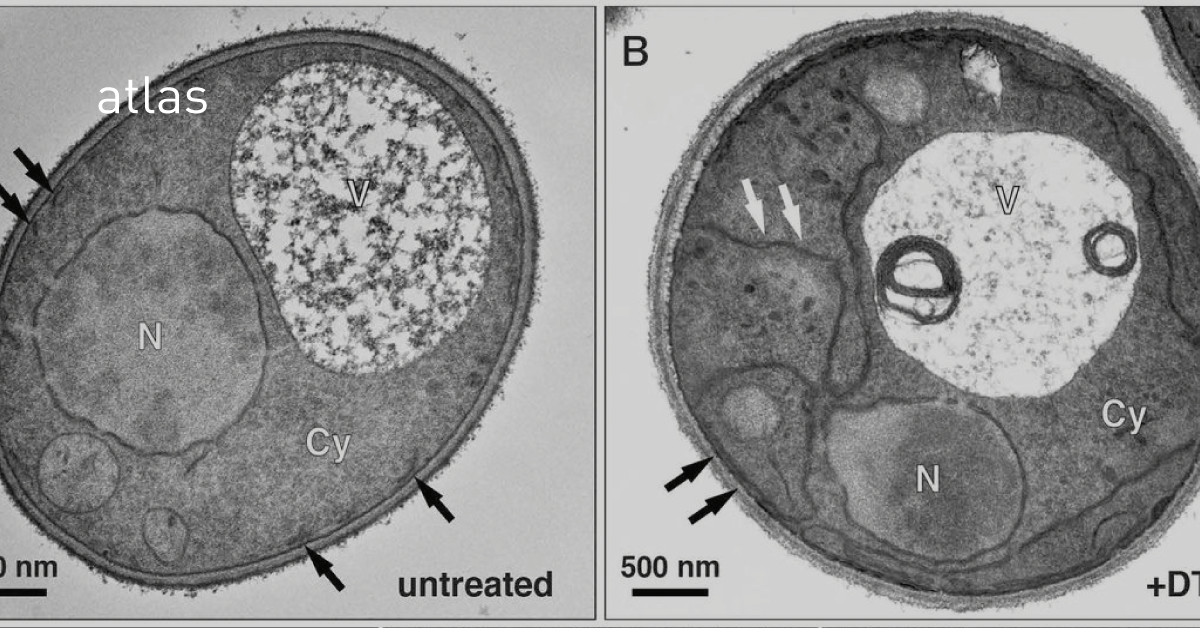Nobel Prize 2016 in Physiology and Medicine
Autumn is a time of harvest, and Japanese molecular biologist Yoshinori Osumi received his deserved reward. On October 3, 2016, he received the Nobel Prize in Physiology and Medicine for studying the mechanisms of autophagy, which he has been conducting since the 1990s. What exactly the scientist discovered, and why it is so important for each of us - in the review of Atlas experts .
Time to live and time to die, and complex cellular organisms follow this creed. Autophagy is the ability of a cell to kill itself in parts at the right time, destroying its own organs, simply digesting itself from the inside. This does not happen with any special "bad" cells, but with all. On the contrary, stubborn cells that don’t want to engage in “samoedism” and cherish their organelles, even if they don’t work very well, we will call bad - they become the cause of malignant tumors.
But “decent” cells that closely monitor the order in their household and regularly get rid of trash, contribute to the rejuvenation and prolongation of the life of the whole organism.
')
Research on
In theory, the process of autophagy was clear in the 1970s, and then scientists were able to appreciate the importance of intracellular general harvesting. The merit of Yoshinori Osumi is that he has studied and described this process in detail.
For his tests, the Japanese scientist used baker's yeast - a eukaryotic organism (whose cells contain a nucleus), in which the process of autophagy can be observed under a microscope. As a result of various experiments and gene modifications, Yoshinori Osumi identified proteins and genes that are involved in autophagy.
One of them, the TOR gene, regulates the start of the autophagy process depending on the amount of energy for the cells (the same adenosine triphosphate we wrote about yesterday ). While there is a lot of energy, TOR works actively and keeps cells from samoedy. As soon as the body's strength is exhausted, the protein turns off and transfers the control panel to the APG proteins that trigger autophagy.
Autophagy promotes rejuvenation and slows aging. From this it follows that the stimulation of this process within reasonable limits is the key to longevity. One of the simplest ways to control autophagy is to reduce the number of calories consumed (a small starvation), which blocks the TOR signaling pathway.

Ancha Baranova
Doctor of Biological Sciences, Professor at the School of Systems Biology at George Mason University (USA),
Chief Researcher, Medical and Genetic Scientific Center, Russian Academy of Medical Sciences,
Director of Science at the Biomedical Holding "Atlas"

PS Video at the beginning of the article - a video clip of 2013, prepared by the University of Michigan. On the screen - a creative perception of the process of autophagy, which was created by biologists, illustrators, choreographers, dancers and composers.
Autophagy and Samoyed
Time to live and time to die, and complex cellular organisms follow this creed. Autophagy is the ability of a cell to kill itself in parts at the right time, destroying its own organs, simply digesting itself from the inside. This does not happen with any special "bad" cells, but with all. On the contrary, stubborn cells that don’t want to engage in “samoedism” and cherish their organelles, even if they don’t work very well, we will call bad - they become the cause of malignant tumors.
But “decent” cells that closely monitor the order in their household and regularly get rid of trash, contribute to the rejuvenation and prolongation of the life of the whole organism.
')
Research on vegetable oil baker's yeast
In theory, the process of autophagy was clear in the 1970s, and then scientists were able to appreciate the importance of intracellular general harvesting. The merit of Yoshinori Osumi is that he has studied and described this process in detail.
For his tests, the Japanese scientist used baker's yeast - a eukaryotic organism (whose cells contain a nucleus), in which the process of autophagy can be observed under a microscope. As a result of various experiments and gene modifications, Yoshinori Osumi identified proteins and genes that are involved in autophagy.
One of them, the TOR gene, regulates the start of the autophagy process depending on the amount of energy for the cells (the same adenosine triphosphate we wrote about yesterday ). While there is a lot of energy, TOR works actively and keeps cells from samoedy. As soon as the body's strength is exhausted, the protein turns off and transfers the control panel to the APG proteins that trigger autophagy.
Autophagy promotes rejuvenation and slows aging. From this it follows that the stimulation of this process within reasonable limits is the key to longevity. One of the simplest ways to control autophagy is to reduce the number of calories consumed (a small starvation), which blocks the TOR signaling pathway.

Expert comment
Ancha Baranova
Doctor of Biological Sciences, Professor at the School of Systems Biology at George Mason University (USA),
Chief Researcher, Medical and Genetic Scientific Center, Russian Academy of Medical Sciences,
Director of Science at the Biomedical Holding "Atlas"
Autophagy is one of the fundamental processes of preserving homeostasis, which is realized at the level of the cell. In this way, the cell ensures that each of its components works to its fullest, and if something goes wrong, under the knife and into the smelting. For example, let's take mitochondria - there are hundreds of them in each cell, and not all of them function equally effectively. The cell constantly tests its “small power stations”, and if the efficiency of one of them drops, such a mitochondria will be quickly “disassembled” into its constituent elements, that is, simply digested. Of the remaining "building materials" will build a new "station", which will work efficiently. This kind of natural selection at the level of cellular organelles - who does not work, he will be eaten. As a result, the cell is constantly working to optimize all processes.
Too intensive autophagy can lead to apoptosis - programmed cell death: if a cell cannot update itself, it will be eaten by neighboring cells. And there is nothing bad in it - on the contrary! Effective cell self-renewal is a guarantee of health and longevity.
Stimulation of autophagy - one of the ways of therapeutic effects on the body. Autophagy stimulates metformin - a drug that reduces insulin resistance, and therefore indispensable in the treatment of metabolic syndrome and diabetes. At the same time, it helps other systems of the body, in particular, reducing the likelihood of malignant transformation of cells.
Interestingly, molecular oncologists are now experiencing two types of anticancer drugs at once - autophagy stimulants and autophagy inhibitors (blockers). A high level of autophagy is necessary to prevent the development of tumors, but if the cancer has already developed, autophagy must be suppressed. Tumor cells have “learned” to use this important cell renewal process to develop resistance to chemotherapeutic drugs.

PS Video at the beginning of the article - a video clip of 2013, prepared by the University of Michigan. On the screen - a creative perception of the process of autophagy, which was created by biologists, illustrators, choreographers, dancers and composers.
Source: https://habr.com/ru/post/369735/
All Articles